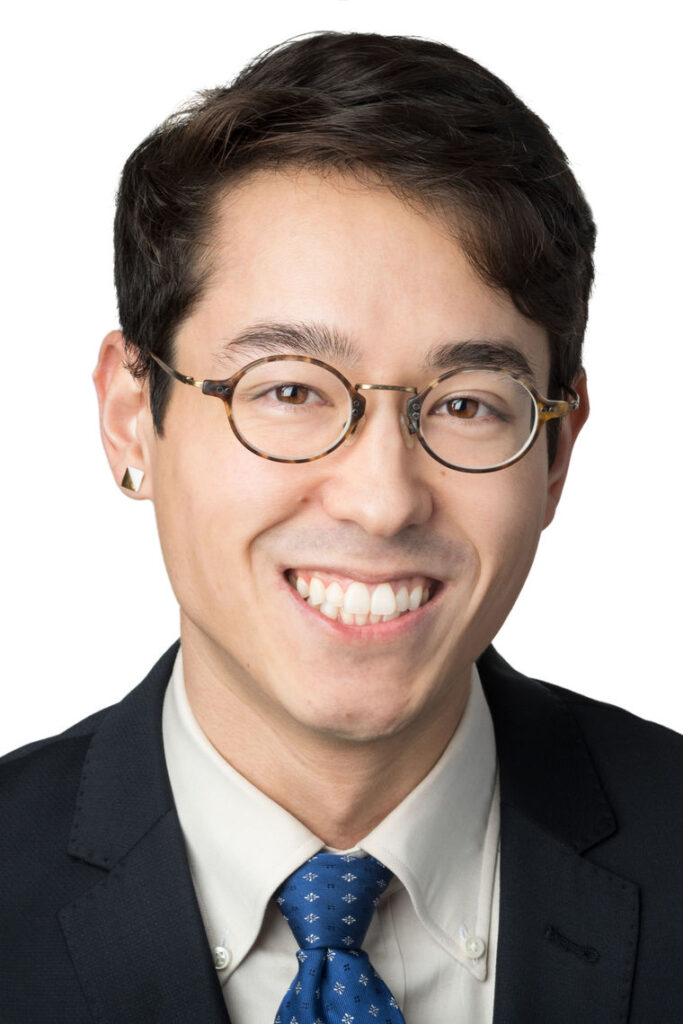- Fellow Highlights
Looking Back at the Fellowship: Neuroscience MD/PhD Student Mark Aurel Nagy
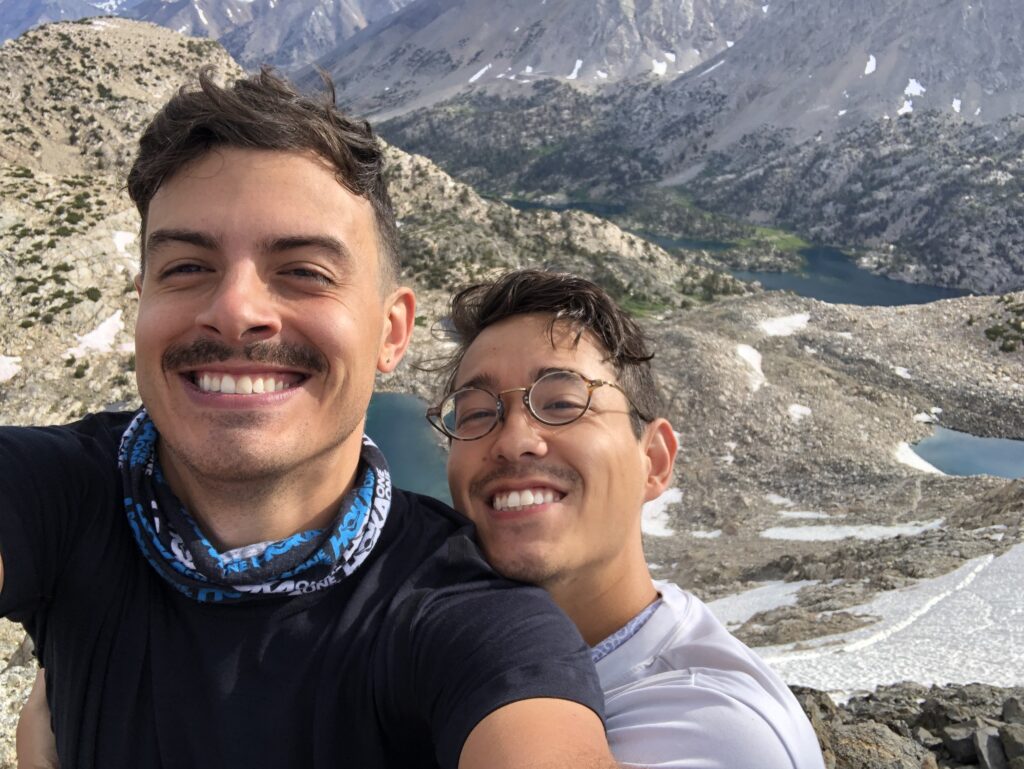
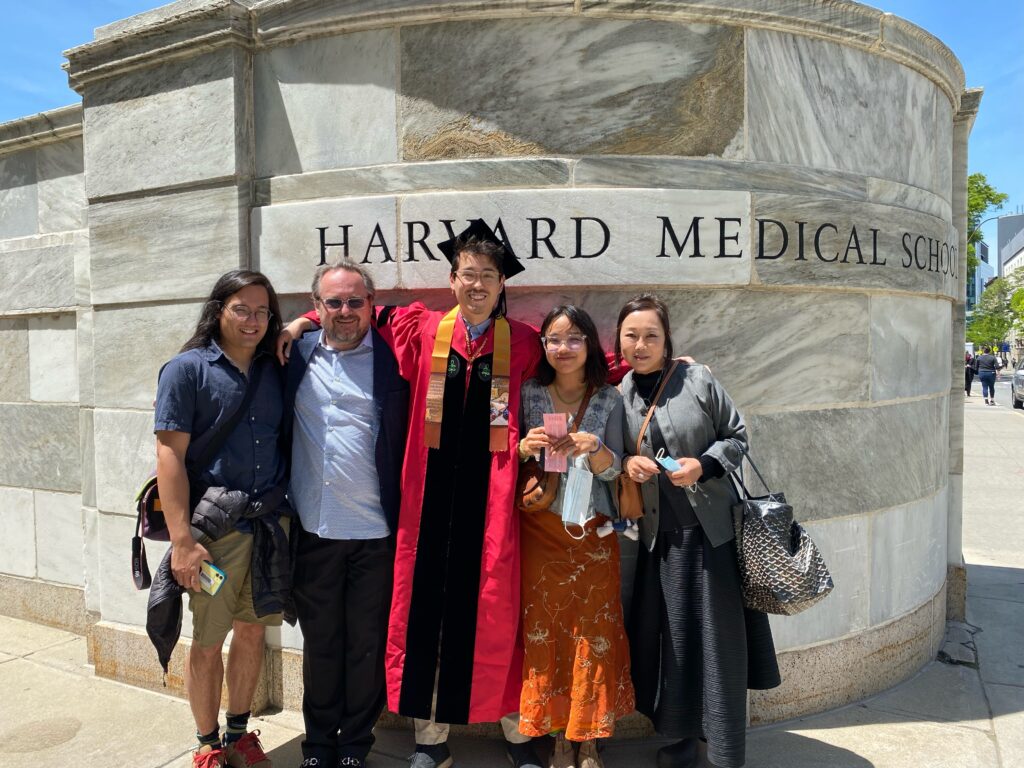
2020 Paul & Daisy Soros Fellow Mark Aurel Nagy, who was born in Budapest to a Chinese mother and a Hungarian father, recently finished his MD and graduated from the Harvard-MIT Health Sciences and Technology MD/PhD program. At Harvard, Aurel completed his neuroscience PhD in Professor Michael Greenberg’s lab. His dissertation work, published in the journals Nature Neuroscience and Neuron, employed next-generation sequencing-based assays to understand how sensory experience shapes neuronal function. Aurel has also been developing a company that leverages approaches created during his PhD to engineer better viral vectors for gene therapy of neurological disorders. He hopes to become a practicing physician-scientist dedicated to making lasting improvements to patient care through scientific advancement and, as a gay person of color, increase visibility for underrepresented minorities in the sciences and medicine.
We caught up with Aurel, who recently moved to Colorado to start residency, about what’s next and what the Fellowship has meant to him:
Where are you with your graduate program now? Whether you’re still in school or you’ve graduated, what’s the next step for you?
I completed my MD degree with magna cum laude honors for a thesis on engineering next-generation viral vectors for gene therapy, wrapping up 10 years (!) of MD PhD training on the road to become a physician scientist. I can’t wait to start my neurology residency at the University of Colorado School of Medicine in Denver next week, where I can focus on honing my clinical skills in a place with easy access to stunning landscapes and incredible mentorship.
Over the past two years, what personal or professional accomplishment are you most proud of?
So many things! I’m proud that the technology I co-developed during and after my PhD to generate improved viral gene therapies was licensed by a start-up and is now being employed to hopefully someday change how rare inherited disorders are treated. I’m excited about several vectors we generated in the process with potentially wide disease applicability we’re now refining for clinical use. I look back on my experiences in the demanding clinical rotations of the final two years of medical school, all during the COVID pandemic, and am grateful to my mentors for giving me a space to learn and grow. And I’m thrilled to start the next chapter of my life as a physician in Colorado with my long-time partner Gus, now celebrating 10 years together this July!
Why did you apply to The Paul & Daisy Soros Fellowships for New Americans? What ended up being the most important part of the Fellowship? Do you have any favorite memories from the past two years as a Paul & Daisy Soros Fellow?
I applied to the Fellowship to support the final two years of my MD degree after hearing close friends share their stories about the Fellowship’s philosophy, mission, and camaraderie. These factors plus the chance to reflect on and celebrate my awe-inspiring parents for their sacrifices and achievements in raising an immigrant family in the US made the Fellowship a great fit for me. This reflection on my family and the connections I’ve made since becoming a Fellow are the most important aspects of the Fellowship to me.
Going to the 2021 retreat in Nashville was an absolute blast—despite the initial COVID setback, I finally had the opportunity to meet not only my class but the classes above and below mine in a city I’d never been to but always wanted to see. Dinner, drinks, music shows, conversation, and fantastic connections in a whirlwind weekend with like-minded folks who just got the immigrant experience—I’d never been in a setting like it.
What advice would you give to someone who is thinking of applying to The Paul & Daisy Soros Fellowships for New Americans?
Just go for it! There’s nothing to lose and a lot to gain. The application gives you a chance to sit down and really think about your identity in a way you might not do on your own (at least I wouldn’t have): your past, your family, your goals, your future. I almost didn’t apply for fear of an uncompetitive application, and my fears were confirmed when I failed to get the Fellowship (or even an interview) the first time I applied. Thankfully I tried again, and now here I am! ∎
Keep Exploring
-
 Read more: Q&A with MD/PhD Student Silvia Huerta Lopez
Read more: Q&A with MD/PhD Student Silvia Huerta LopezQ&A with MD/PhD Student Silvia Huerta Lopez
-
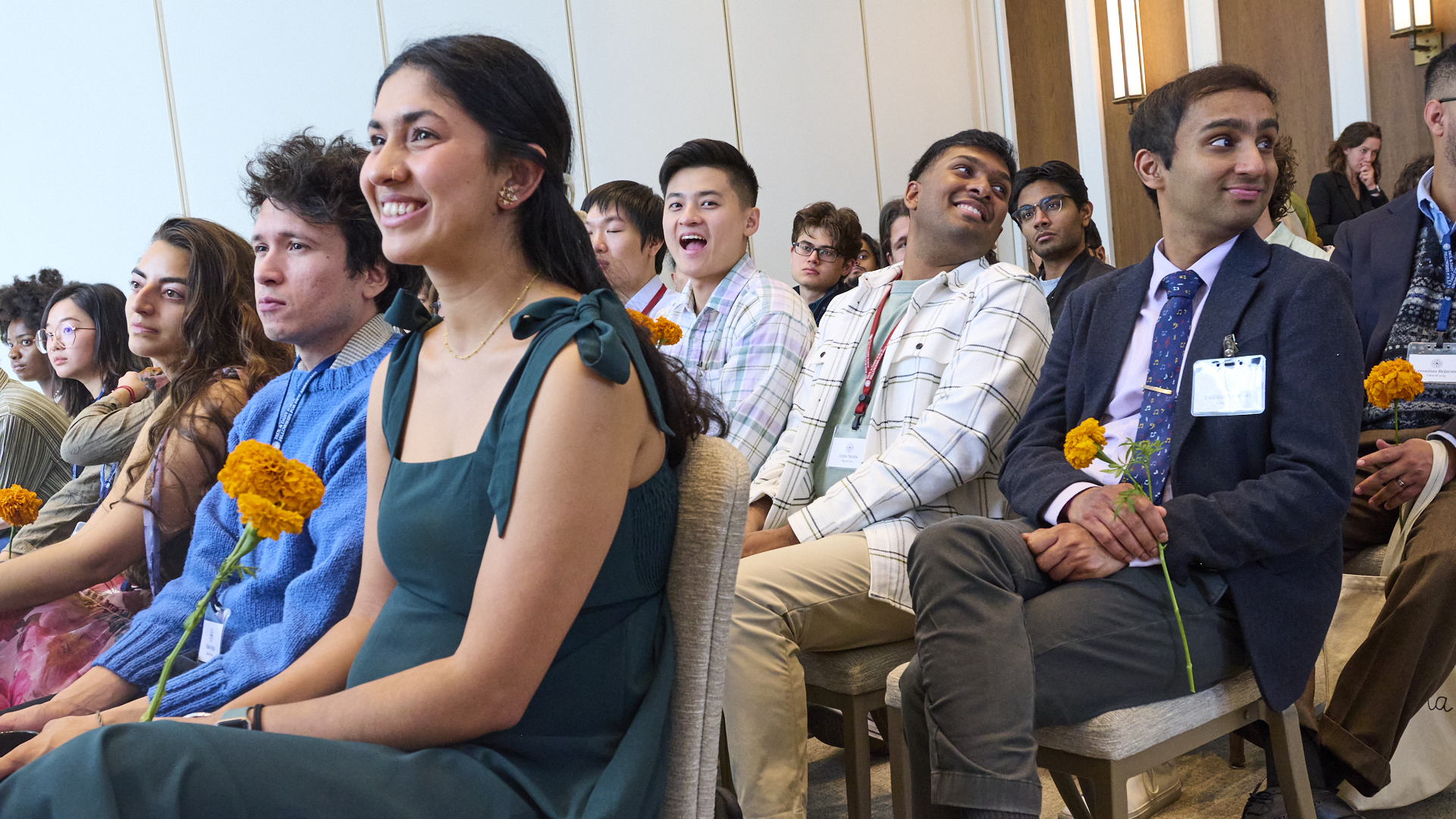 Read more: PD Soros Eligibility Guide for PhD Applicants
Read more: PD Soros Eligibility Guide for PhD Applicants- Applicant Information
PD Soros Eligibility Guide for PhD Applicants
-
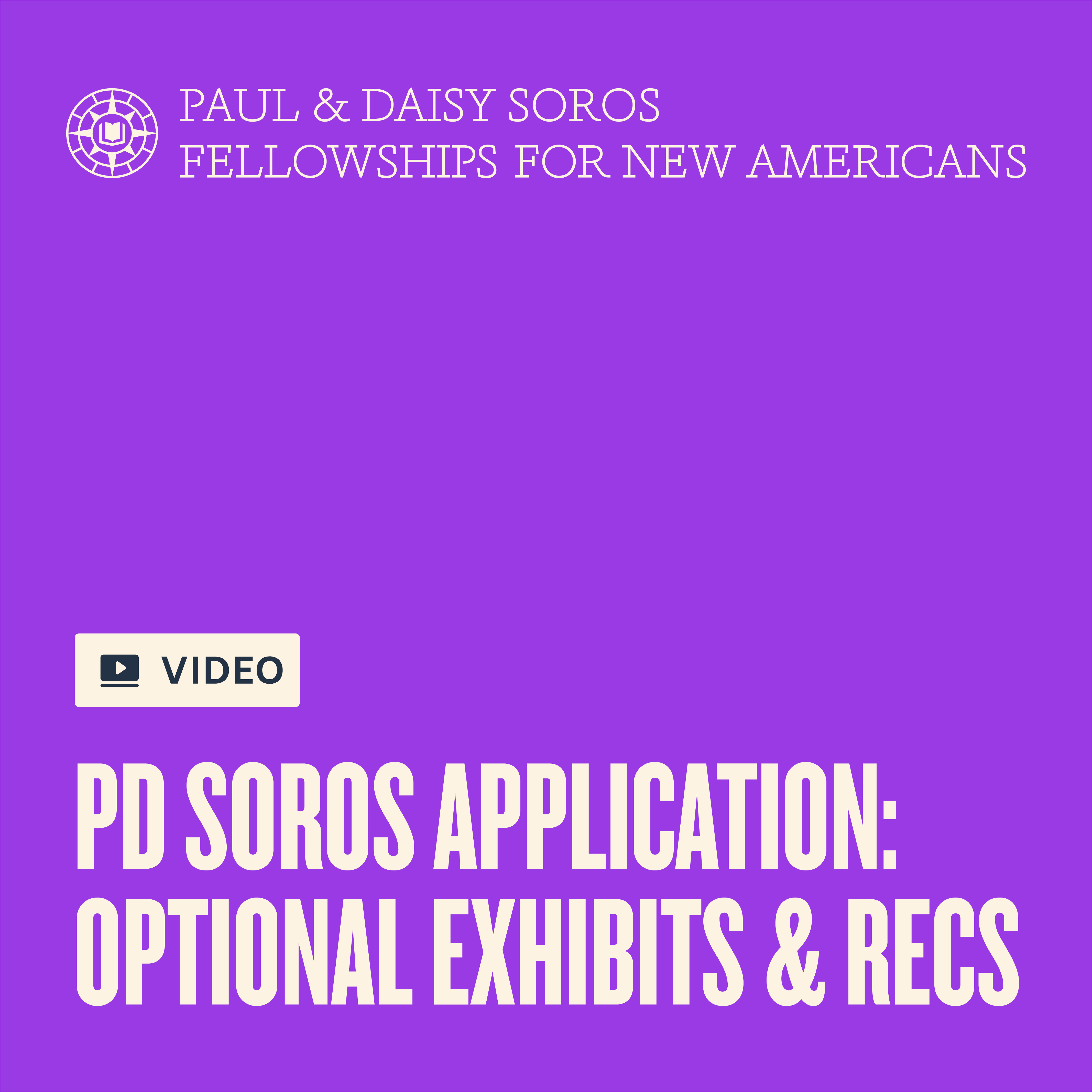 Read more: Watch: Optional Exhibits & Recommendations
Read more: Watch: Optional Exhibits & Recommendations- 2025 Information Sessions
Watch: Optional Exhibits & Recommendations
-
 Read more: Watch: Essay Writing information session
Read more: Watch: Essay Writing information session- 2025 Information Sessions
Watch: Essay Writing information session
